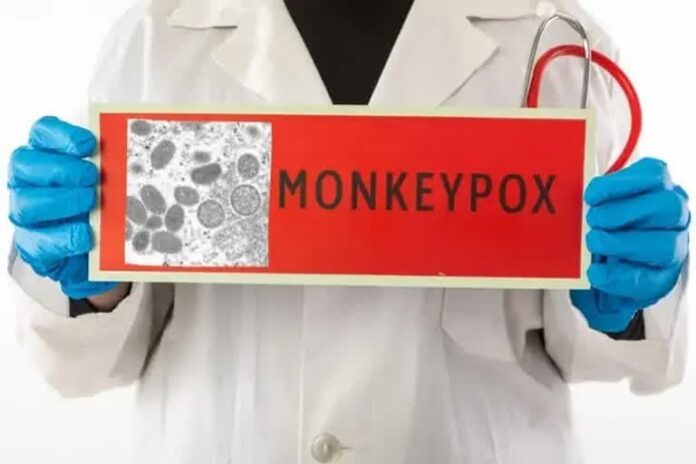| Translate This News In |
|---|
According to the World Health Organization, the spreading monkeypox epidemic in more than 50 nations should be closely watched but is not severe enough to be considered a global health emergency. A WHO emergency committee noted that monkeypox, which is prevalent in some African nations, has been neglected for years and said that many characteristics of the outbreak were “unique” in a statement released on Saturday.
“Although a few members expressed differing opinions, the committee agreed by consensus to advise the WHO director-general that at this time the epidemic should be assessed to not constitute,” according to a statement from WHO. Nevertheless, the WHO emphasised the “emergency nature” of the outbreak and stated that containing it needed a “intense” response.
The commission advised “tight monitoring and reassessment after a few weeks” of the pandemic. It would, however, suggest a reevaluation sooner rather than later if certain new events, such as cases among sex workers, diffusion to other countries or within countries where instances had already occurred, an increase in the severity of cases, or an accelerated rate of transmission, happened.
The emergency committee was established on Thursday by WHO Director-General Tedros Adhanom Ghebreysus after he expressed alarm about the monkeypox pandemic in nations that hadn’t previously reported the disease.
The WHO director noted that the rapid and ongoing spread into new nations and areas and the potential for continued, sustained transmission into vulnerable groups, such as those who are immunocompromised, pregnant women, and children, made the current outbreak particularly worrisome.
Monkeypox has been a major source of illness for many years in central and west Africa, but until last month, it was not known to create substantial outbreaks in numerous nations at the same time that involved people who had no travel ties to the continent.
Declaring a global health emergency indicates that a disease is highly likely to cross international borders and that a health crisis is a “extraordinary” event requiring a globally controlled response. The WHO has previously issued similar statements regarding illnesses including COVID-19, Ebola in the Congo and West Africa, Zika in Brazil, and the ongoing campaign to eradicate polio.
The emergency declaration primarily serves as a call to action to focus greater global resources and attention on an outbreak. Due to WHO’s limited ability to persuade governments to take action, previous statements have had a mixed record of success.
This week, the WHO said that it has identified more than 3,200 monkeypox infections in roughly 40 nations that had not previously reported the illness. More than 80% of instances involve men who identify as gay, bisexual, or having sex with other men, and the vast majority of these cases take place in Europe.
Last month, a top WHO advisor stated that the increase in infections in Europe was most likely caused by men engaging in sexual activity at two raves in Spain and Belgium, estimating that its occurrence in the gay and bisexual community was a “random event.” Most instances in the UK, according to British officials, involve males who claim to have engaged in sexual activity with other men in settings like saunas and sex clubs.
No matter what their sexual orientation, scientists caution that anyone who comes into close, physical contact with a person who has monkeypox or their clothing or bedsheets runs the danger of contracting the illness. Fever, aches in the body, and a rash are common symptoms of monkeypox; most people get better on their own in a few weeks.
Infected individuals who come in contact with rats or primates that are carrying the monkeypox are most commonly affected. In Congo, Cameroon, and the Central African Republic, there have been roughly 1,500 cases of monkeypox documented, with 70 fatalities.
Although the quantity of modifications revealed suggests the virus has probably been spreading unnoticed for years, scientists haven’t yet discovered any mutations in the monkeypox virus that imply it’s more contagious or deadly. In contrast to the variant seen in Africa, which can kill up to 10% of those affected, the version of the disease spreading outside of Africa normally has a fatality rate of less than 1%.
The WHO is also developing a system for exchanging monkeypox vaccines, which could result in vaccines being sent to wealthy nations like Britain, which is now seeing the largest outbreak outside of Africa. According to some researchers, this could deepen the disparities between wealthy and developing nations that were already present during the coronavirus pandemic.
Dr. Irwin Redlener, a Columbia University expert in disaster preparedness and response, asserted that France, Germany, the United States, and the United Kingdom already have plenty of resources and vaccines to handle this and do not require vaccines from WHO.
What we ought to be doing, according to him, is making an effort to assist the mostly unassisted nations of Africa where monkeypox is an endemic problem. “Monkeypox is not COVID, but our focus shouldn’t be so skewed that it only becomes a worry when it is encountered in wealthy countries,” the author says. (AP)


















